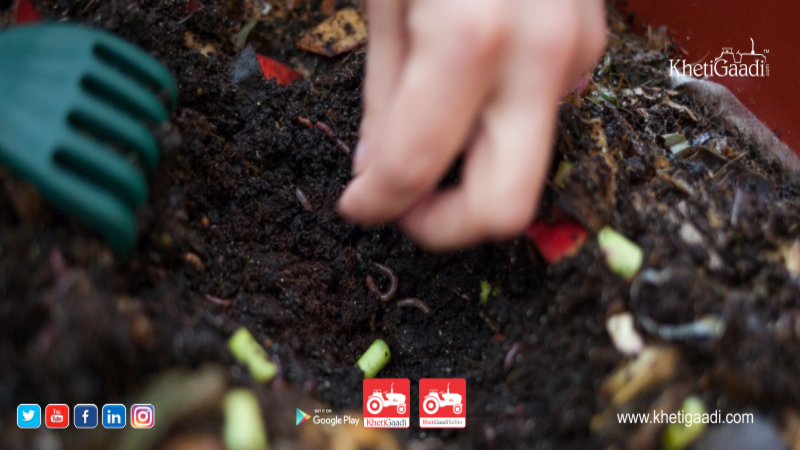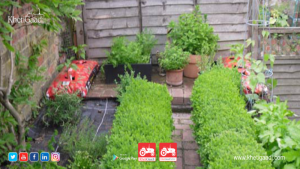If you want to grow food successfully in containers, nurturing soil life can make a huge difference. Worm compost, for example, is full of microbes and life. Add it to your containers and you will get more vigorous growth, and far fewer pest and disease problems. Discovering this, was the biggest turning point in my growing (more important, even, than self-watering containers), transforming sporadic successes into something more consistent.
Why is soil life important?
The healthy organic soil in the natural world supports a web of life including bacteria, fungi, protozoa, nematodes as well as larger creatures like worms and slugs. These organisms play a vital role in the life of plants. They break down organic matter to make the nutrients available for plant roots. They condition the soil and create air spaces and tunnels in it – improving aeration and drainage. And they compete with other more harmful organisms in the soil, ones that will damage your plants if left unchecked.
How can you add soil life to your containers?
There are several different ways you can add life to containers
1. Worm compost
Worm compost is particularly rich in soil life. It’s my number one choice for adding life to containers. When matter is passed through the worm’s body it becomes inoculated with all sorts of tiny life forms. So worm compost contains bacteria, fungi and other microscopic goodies (as well as worms!).
2. Homemade compost
Homemade compost is also rich in life. It’s not quite as rich in microbes as worm compost, but still lively! Add 15 – 30% by volume to new compost to inoculate with life.
3. Leaf mould
I don’t know many people growing in urban spaces who have the space or access to enough leaves to make leaf mold (would love to hear from you if you are). But if you do – or have a supply – this is another ingredient teeming with life. It’s a particularly useful ingredient for making seed sowing mixes as it is also low in nutrients.
4. Manure
Manure is also rich in microbial life. In urban places you can often find it – free or at low cost – at City Farms or police stables. Manure varies tremendously in quality and the goodies – and nasties like drug residues – that it contains – so ask around and try in small quantities first.
5. Bokashi
Bokashi is Japanese method of composting food quickly in a tightly sealed bucket. Benefits of bokashi are that you can add almost any food (even meat), it works quickly, can be done in a very small space, and doesn’t smell (much).
How Compost Helps Your Soil
- Nutrients are released at the rate your plants need them. In early spring, as your plants are slowly starting their growth, the microorganisms in compost are slowly releasing nutrients. As the weather warms up and your plants begin rapid growth, the microorganisms also work faster, releasing more food for your plants. Isn’t nature wonderful?
- Increases the water-holding capacity of the soil. Compost can hold an amount of water equal to 200 percent of its dry weight, compared to 20 percent for a low-humus soil.
- Acts as an inoculant to your soil, adding microorganisms and larger creatures such as earthworms and insects, which are nature’s soil builders. The compost environment is teeming with life, and all soils can benefit from such a rejuvenation.
- Neutralizes various soil toxins and metals, such as cadmium and lead, by bonding with them so they can’t be taken up by plants.
- Acts as a pH buffer so plants are less dependent on a specific soil pH. The earthworms in the compost help in this process, because in passing organic matter through their bodies they modify the pH of the soil. And you can lower the pH of your soil by adding compost made from acidic raw materials, such as oak or beech leaves, sawdust, and pine needles
For reading more interesting and useful articles, kindly visit: blog.khetigaadi.com
Visit our page for more information about Tractor, Agricultural implements, Tractor Price, Tractor Videos, and Tractor Games.




